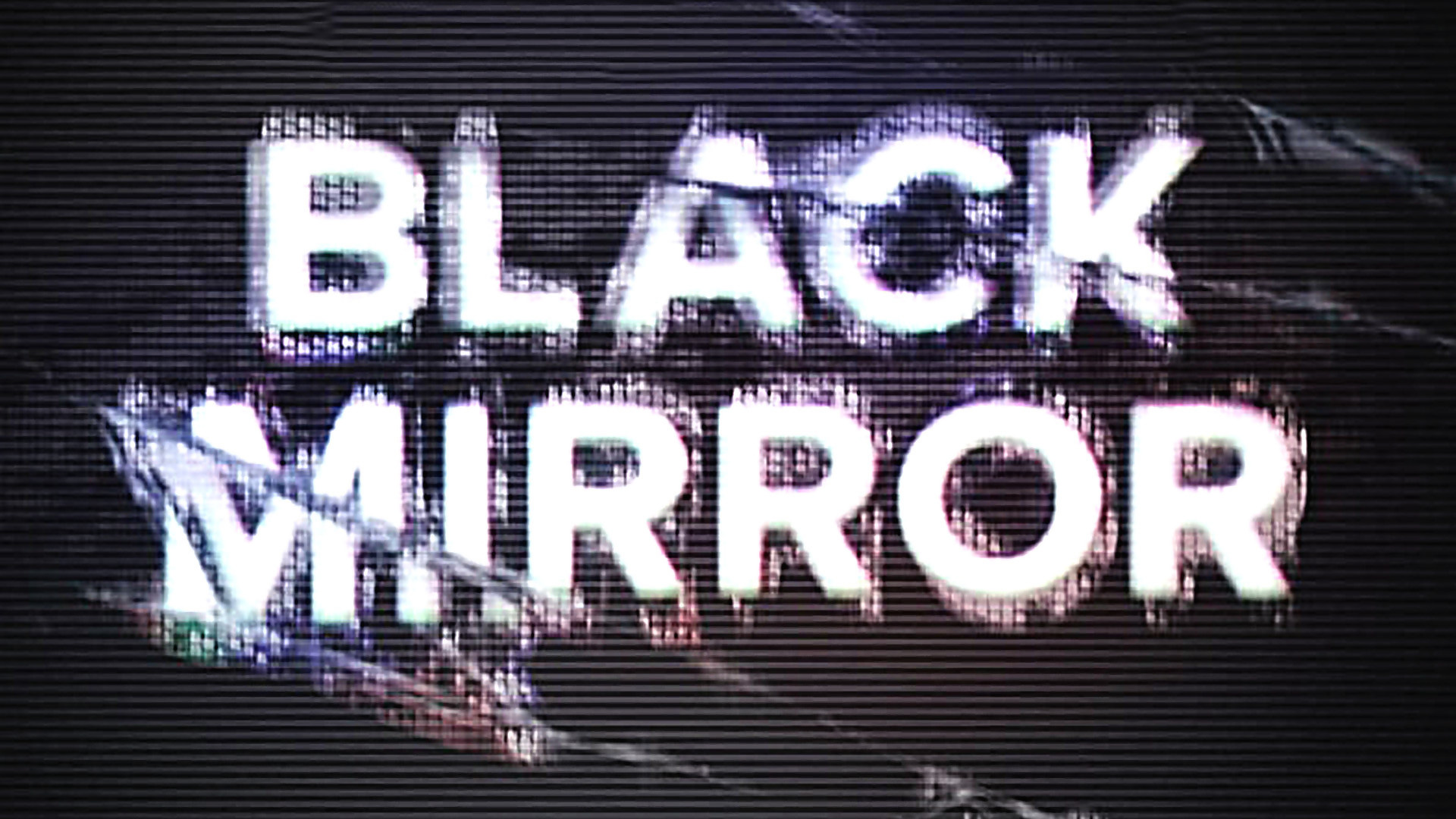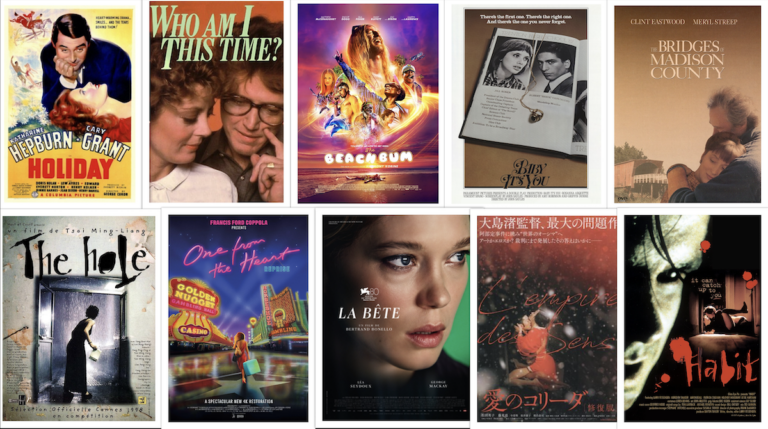Ranking “Black Mirror” and its Terrifying New Season

For a kid who eats up dystopian media like it’s Sunday brunch at Usdan, the British satirical TV show “Black Mirror” is an extra helping of cheesy eggs. The show combines all the things that I love in a good dystopia: topical references to issues within today’s society, compelling and sometimes horrifying storylines, total annihilation of the self, and British accents. After discovering it in the fall of my senior year of high school and binge-watching seasons 1 and 2 within days, I found myself somewhat at odds with reality but wanting more. It wasn’t until Oct. 21, when season 3 finally came out on Netflix, that my hunger was satisfied. That night, I grabbed my buddy David and a massive mound of pillows and blankets and sat down to have my mind blown over and over for seven hours straight.
The show has proven itself to be an excellent one, beautifully finding the flaws in contemporary society and manifesting them into alternative realities and not-so-distant futures that are at once so strange and so very familiar. Season 3 easily matches the heights attained by the first two seasons; each hour to hour-and-a-half-long episode is an incredibly different look into a path we’d do well not to take. I’d like to take a couple paragraphs to walk though this season’s episodes, via a ranked list from my least favorite episode (which I still loved, because each episode is amazing) to my ultimate favorite. Keep in mind that my list will be based on personal opinion, and also that it’s coming from a novice who may know a thing or two about dystopian stories but admittedly doesn’t know much about film. But I’ll push on anyway. Oh, and needless to say, spoiler alert.
- Coming in last is the first episode of this season: “Nosedive.” This episode reads like your classic anti-social media narrative, taking place in a world where people are constantly rated out of 5 stars by those they interact with day to day. Essentially, higher-rated people have more life perks (like better seating on planes, access to vehicles, housing, you name it), whereas those on the lower end (3.5 stars and below) have trouble getting into buildings or even interacting with those around them. The episode creates a world of superficial niceness and inauthenticity, which is not unlike our own reality. The storyline itself, following a woman named Lacie’s quest to get a higher ranking, is somewhat predictable and the stakes aren’t high enough for viewers to pay rapt attention. However, the ironic pastel color scheme and the quirky familiarity, plus the applicable commentary on the preservation of image, are enjoyable enough. This episode also marks one of the only hopeful endings of this season. Compared to the other episodes of this season, though, I found “Nosedive” just a little bit unexciting and bland.
- At number 5 is the third episode of this season, “Shut Up And Dance.” It’d take a resilient soul to be able to last through this episode unscathed, and I found myself questioning my code of ethics after the screen went black. The episode chronicles the story of a teenager named Kenny, who, after downloading some computer software that supposedly cleans his computer of viruses, finds himself unknowingly being filmed during an intimate moment. Kenny, threatened with the release of the personal footage, receives a series of texts giving him instructions that range from delivering a cake to robbing a bank to fighting another blackmail victim to the death, all of which he does. Viewers spend most of the episode feeling emphatic toward Kenny, but it’s revealed that Kenny’s actions while filmed were much more horrific than they seemed. Thus, everything we’ve already seen and the attachment to Kenny we’ve formed is suddenly called into question. Are we allowed to continue to empathize with Kenny? Does he deserve what happened to him? The episode essentially gives viewers nothing good to hold onto, and one leaves the episode with a sense of emptiness and confusion. I imagine that was rather the point, though, and if so, the episode did its job well.
- Fourth on my list is the second-to-last episode of this season: “Men against Fire.” This episode features a soldier named Stripe, who along with a group of fellow soldiers is thrown into battle against an elusive enemy, the roaches, which are horribly mutated humans who form hoards and steal from those more fortunate. Stripe, after killing a roach, accidentally picks up a device the roach had been attempting to point at his head. Unbeknownst to Stripe, this device sent out a signal that interferes with his Mass, the system in his head provided by the army to manipulate his senses. The Mass eventually completely breaks down from the interference, just in time for Stripe to meet with two roaches, who turn out to be a completely normal mother and son, not the mutated projections he’d been seeing. Thus, the episode deals with the demonization of the enemy used for military purposes, a concept all too real when it comes to our own military. It also confronts genetic engineering, since the roaches are demonized because they’re more susceptible to disease, have lower IQs, and suffer from mental health problems. The concept itself is daring and interesting, but there were a few too many plot holes, and I felt the themes were a bit underdeveloped for the episode to be higher on the list. However, Stripe’s intricate character arc and his intense ethical choices make it into a well-made episode nonetheless.
- At the number 3 spot is the very last episode of this season, called “Hated in the Nation.” I actually quite liked this episode, due to its unconventional (or rather, extremely conventional) mode of storytelling: The episode was a detective story. At the helm of the narrative is the characteristically gruff veteran detective, Karen Parke, who takes on a tech-savvy rookie to tackle a case about the mysterious death of a despised journalist. The episode takes place in the near future, in which the environment has been degraded enough to cause the extinction of bees, requiring a system of “drone bees” to pollinate plants. These bees end up being the major perpetrators of mass murder, digging their way into people’s heads and killing them after excruciating pain. This episode compiled a whole bunch of themes, including privacy rights and government spying, environmental degradation, hive mentality, and lacking empathy. It was excellently executed, in my opinion, through the classic cop tale incorporating a variety of perhaps well-worn themes, but was presented as a really interesting storyline coupled with a commentary on technology’s capacity to do extreme good and extreme harm.
- My second favorite episode of this season, “Playtest,” is probably a controversial choice, but I’ll stick with it just because it drove me so fantastically insane. The episode takes place in our own time, and it comments on humanity’s love of virtual reality and experiencing fear. It follows the story of a traveler named Cooper, stranded in Britain, who signs up to participate in an augmented reality playtest to earn some money to get back to America. The test starts off with a device implanted in his brainstem, that causes him to see things that aren’t actually there and his sensory organs to perceive these visuals as realistic. Viewers spend the entirety of the episode wondering what is real and what is not, as Cooper is faced with horror after horror, including the face of his high school bully stretched across a spider (very creepy, gave me nightmares), even after the device is supposedly removed. The ending of the episode is what makes it simultaneously excellent and gut-wrenching, and it forced me to question my own perceptions of reality. It does a great job of using fear to comment on reality; I came out of watching this episode completely stunned and reeling, in the most exhilarating way.
- My top episode of this season, and my second favorite episode of all time (after “15 Million Merits”) is “San Juniperio.” This episode is absolutely beautiful, and it is uncharacteristically positive, which emphasizes the range of possibilities for the use of technology (both good, and bad). The episode is about love, with the themes of immersive technology and virtual reality secondary to the multifaceted relationship between two young women, Yorkie and Kelly, who meet in the city of San Juniperio in 1987. As always with “Black Mirror,” however, things are not as they seem in the beginning, and it’s eventually revealed that San Juniperio is a city populated by the uploaded consciousnesses of elderly people, where sex and partying and youth are revived. Yorkie and Kelly, however, manage to find something more substantial in the superficial realm, and despite disadvantages, the two carve out a small haven for themselves. The story is touching and beautiful, and though it plays on themes of excessive nostalgia and pleasure-seeking, it also looks at technology as a means of therapy. Plus, it’s fueled by a funky ’80s soundtrack, which never hurts. All this makes San Juniperio a refreshingly beautiful and heartening episode, giving it the top spot on my list.








Leave a Reply